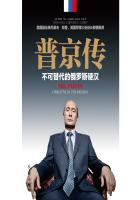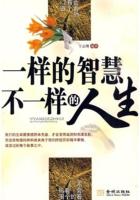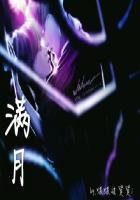In the Alabama newspapers of the latter half of 1863 strange incidents are to be found throwing light on the administrative duel. The writ of habeas corpus, as was so often the case in Confederate history, was the bone of contention. We have seen that the second statute empowering the President to proclaim martial law and to suspend the operation of the writ had expired by limitation in February, 1863. The Alabama courts were theoretically in full operation, but while the law was in force the military authorities had acquired a habit of arbitrary control. Though warned from Richmond in general orders that they must not take unto themselves a power vested in the President alone, they continued their previous course of action. It thereupon became necessary to issue further general orders annulling "all proclamations of martial law by general officers and others" not invested by law with adequate authority.
Neither general orders nor the expiration of the statute, however, seemed able to put an end to the interference with the local courts on the part of local commanders. The evil apparently grew during 1863. A picturesque instance is recorded with extreme fullness by the Southern Advertiser in the autumn of the year. In the minutely circumstantial account, we catch glimpses of one Rhodes moving heaven and earth to prove himself exempt from military service. After Rhodes is enrolled by the officers of the local military rendezvous, the sheriff attempts to turn the tables by arresting the Colonel in command. The soldiers rush to defend their Colonel, who is ill in bed at a house some distance away. The judge who had issued the writ is hot with anger at this military interference in civil affairs. Thereupon the soldiers seize him, but later, recognizing for some unexplained reason the majesty of the civil law, they release him. And the hot-tempered incident closes with the Colonel's determination to carry the case to the Supreme Court of the State.
The much harassed people of Alabama had still other causes of complaint during this same year. Again the newspapers illumine the situation. In the troubled autumn, Joseph Wheeler swept across the northern counties of Alabama and in a daring ride, with Federal cavalry hot on his trail, reached safety beyond the Tennessee River. Here his pursuers turned back and, as their horses had been broken by the swiftness of the pursuit, returning slowly, they "gleaned the country" to replace their supplies.
Incidentally they pounced upon the town of Huntsville. "Their appearance here," writes a local correspondent, "was so sudden and...the contradictory reports of their whereabouts" had been so baffling that the townspeople had found no time to secrete things. The whole neighborhood was swept clean of cattle and almost clean of provision. "We have not enough left," the report continues, "to haul and plow with...and milch cows are non est." Including "Stanley's big raid in July," this was the twenty-first raid which Huntsville had endured that year. The report closes with a bitter denunciation of the people of southern Alabama who as yet do not know what war means, who are accused of complete hardness of heart towards their suffering fellow-countrymen and of caring only to make money out of war prices.
When Davis sent his message to the Southern Congress at the opening of the session of 1864, the desperate plight of the middle Gulf country was at once a warning and a menace to the Government. If the conditions of that debatable land should extend eastward, there could be little doubt that the day of the Confederacy was nearing its close. To remedy the situation west of the main Confederate line, to prevent the growth of a similar condition east of it, Davis urged Congress to revive the statute permitting martial law and the suspension of the writ of habeas corpus. The President told Congress that in parts of the Confederacy "public meetings have been held, in some of which a treasonable design is masked by a pretense of devotion of state sovereignty, and in others is openly avowed...a strong suspicion is entertained that secret leagues and associations are being formed. In certain localities men of no mean position do not hesitate to avow their disloyalty and hostility to our cause, and their advocacy of peace on the terms of submission and the abolition of slavery."
This suspicion on the part of the Confederate Government that it was being opposed by organized secret societies takes us back to debatable land and to the previous year. The Bureau of Conscription submitted to the Secretary of War a report from its Alabama branch relative to "a sworn secret organization known to exist and believed to have for its object the encouragement of desertion, the protection of deserters from arrest, resistance to conscription, and perhaps other designs of a still more dangerous character." To the operations of this insidious foe were attributed the shifting of the vote in the Alabama elections, the defeat of certain candidates favored by the Government, and the return in their stead of new men "not publicly known." The suspicions of the Government were destined to further verification in the course of 1864 by the unearthing of a treasonable secret society in southwestern Virginia, the members of which were "bound to each other for the prosecution of their nefarious designs by the most solemn oaths. They were under obligation to encourage desertions from the army, and to pass and harbor all deserters, escaped prisoners, or spies; to give information to the enemy of the movements of our troops, of exposed or weakened positions, of inviting opportunities of attack, and to guide and assist the enemy either in advance or retreat." This society bore the grandiloquent name "Heroes of America" and had extended its operations into Tennessee and North Carolina.















